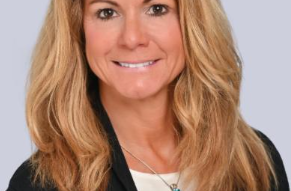David Bercu, principal with the Rosemont, Ill., office of Colliers International, has worked in the commercial real estate business for more than two decades. During this time, he’s learned just what commercial brokers must do to earn the loyalty, and friendship, of their clients.
Midwest Real Estate News: How long have you worked in this business, and what led you to it? David Bercu: I started at Colliers in August of 1987. I had an older brother who was in the real estate business in Florida. He is a significant influence in my life. He felt that the entrepreneurial nature of business was well suited to my personality.
MWREN: What do you like about working in this field? Bercu: The business is very dynamic. Every day is a little bit different. Clients are different, too. Clients have distinct and different requirements. They have distinct and different needs that require a diverse set of personal and professional skills. You have to rely on creativity, financial sophistication and hard work in this business. You need a broad-based understanding of business and how real estate impacts a company’s business.
MWREN: Why have you remained at Colliers for your entire real estate career? Most of the people we interview have jumped from one company to another during their careers. Bercu: The environment here is wonderful. It’s collaborative and cooperative. It’s first-class. The firm has the highest degree of integrity in terms of its reputation. The combination of all those factors makes it a great place to work. In fact, I don’t consider it work when I come here.
MWREN: That’s a goal that most people have for their work. Bercu: I consider a lot of my colleagues to be personal friends. I consider them to be part of my family. When you have that type of personal interaction at the workplace, it makes it a terrific place to come to every day.
MWREN: What position did you hold at Colliers when you first started with the company? Bercu: I was an associate. My focus was on selling and leasing industrial property around O’Hare Airport. Over time, as my real estate knowledge expanded and the market itself expanded, I started to work on projects in outlying areas. I developed more clients and a more diverse customer base.
MWREN: When did you become a principal at Colliers? Bercu: In 1999. It was personally gratifying to be recognized by my peers as someone who could make a contribution to my company and generate revenue. At that time in my career, I was looking for some different and challenging opportunities beyond just brokerage. What I’ve found is that as an executive of the firm, those challenges have been satisfied.
MWREN: What are the challenges that you’ve met as a principal? Bercu: You have to manage expectations both of yourself and of your client. They are both at a very high degree. You have to be reasonable. You have to understand that you are not going to complete every transaction that you work on. There are a lot of external factors that contribute to the outcome. Some of them are beyond your control. You have to learn to be patient. That’s one of the most important things, especially for young brokers, learning how to be a good listener. There is a difference between hearing a client and listening to a client. Hearing is audible. Listening is sympathizing. You can sit and nod your head and hear someone. When you’re listening, though, you understand them.
MWREN: What do you enjoy most about this business? Bercu: Being able to provide a valuable solution to a client’s needs is very professionally gratifying. The greatest satisfaction I have is when I take a relationship that started as a professional relationship and turn it into a friendship. I’m fortunate in my career that I’ve had a handful of those.
MWREN: Why has this happened? Bercu: I’m very genuine with people. I’m sincere. People appreciate that. You don’t build a relationship with someone and do multiple transactions with them if you’re not perceived as a being genuine, sincere and thoughtful. You have to show interest in people’s lives outside their professional lives. You have to ask about their families, their interests, their hobbies. That may sound very simple, but you’d be surprised by the number of times during the course of business when people neglect the human touch.



